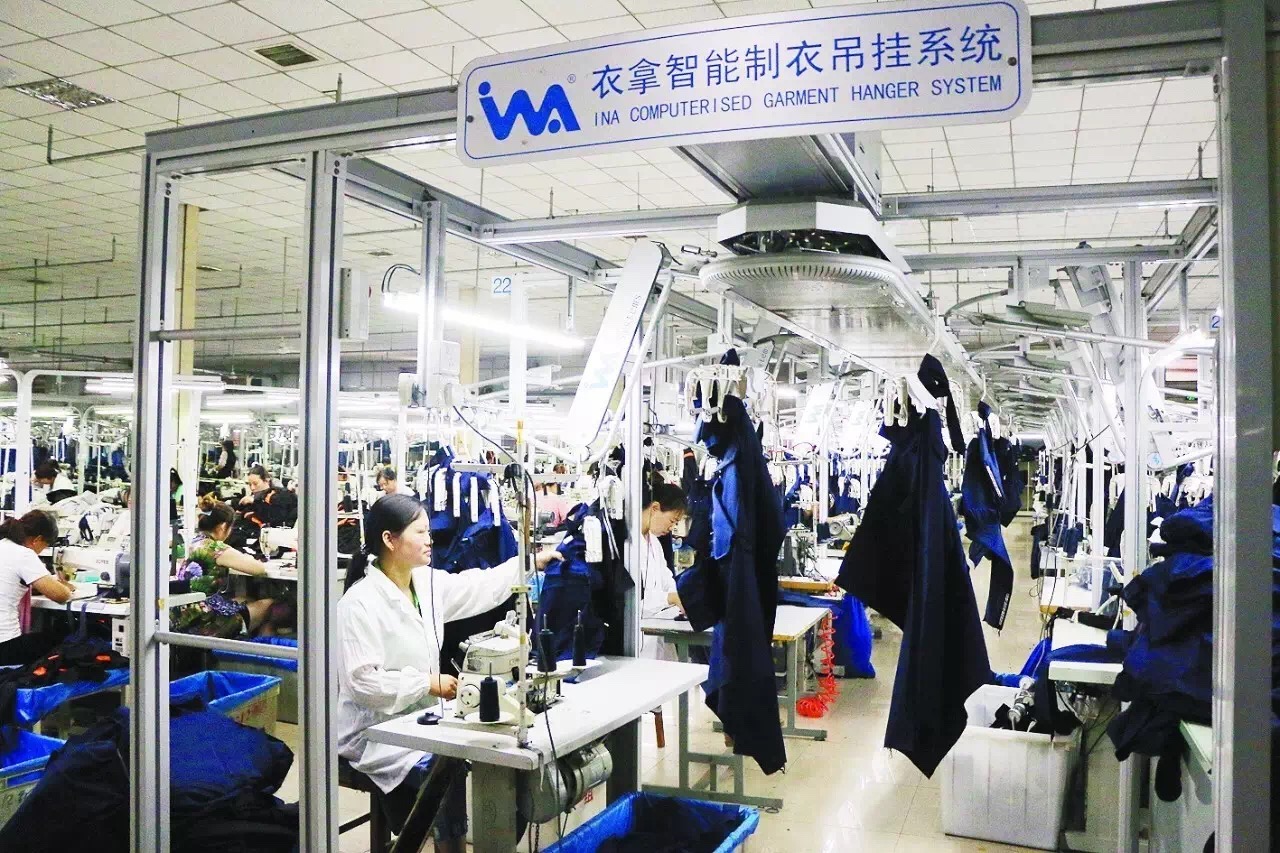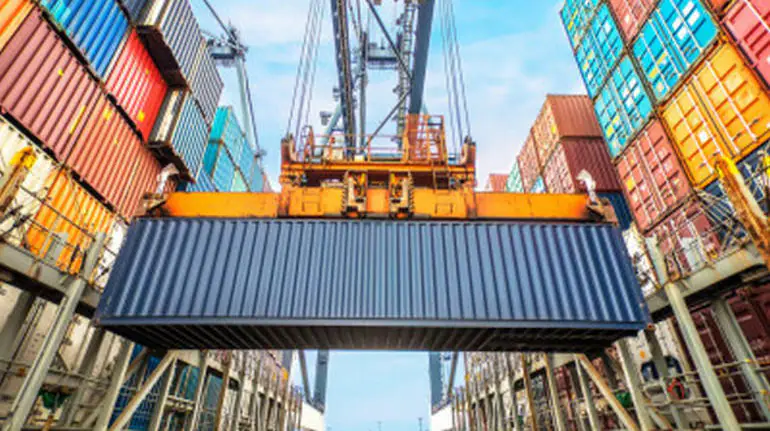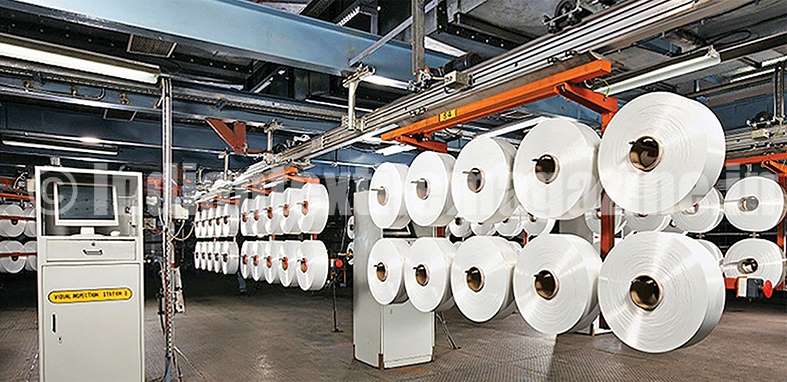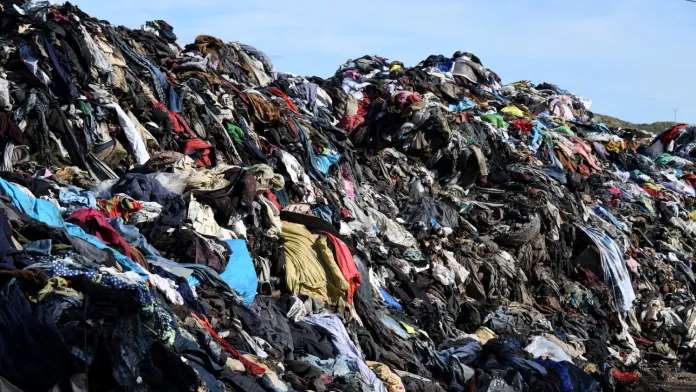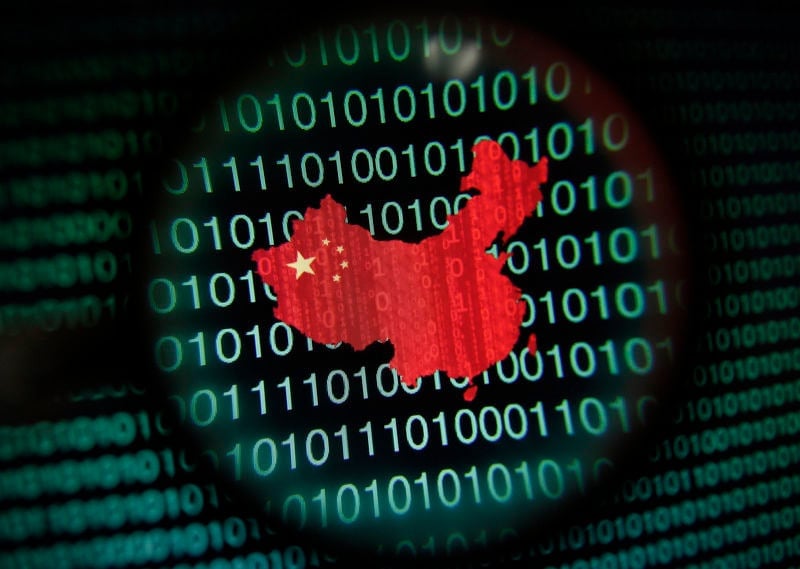FW
At FESPA China 2015 to be held from October 21-23, 2015 in Shanghai, China, over 400 exhibitors are slated to show digital wide format, screen and textile printing technologies.
In stand N 1166, Kiian Digital will launch the latest product in their range of sublimation inks, Digistar Evo, and inks designed for Ricoh print heads, states a FESPA press release. While, the J-Lux, a new series of dye-sub inks with superior light fastness designed for polyester substrates and for applications such as fashion, home decoration, sportswear, flags and banners, will be at stand N 1064, J-Teck3.
Stand N 1361 will have Microtec, that will showcase its two flagship products—Wunderboard HD Aluminium Photo panels, and APEX UV Printers which are designed for industrial bulk production. Inkcups Now Corporation at stand N 1028 will demonstrate Tagless Printing or pad printing of neck labels directly onto garments.
Moreover, there will be a full day of conference sessions on October 22 in both Chinese and English, with seminars covering various topics including the growth of digital textile and screen printing across Asia.
Roz McGuinness, FESPA Divisional Director stated that they are anticipating a great event when FESPA China opens. Those visiting would discover applications and technologies, which will help them to grow their business, as exhibitors would be bringing their very latest equipment, he stated.
Besides, McGuinness added that visitors would be able to combine their time in the halls with attendance at educational sessions, which would give them insight and inspiration into how to evolve in a rapidly changing market.
www.fespa.com
Sales of outdoor clothing and footwear in the UAE are rising. Outdoor climbing, hiking and running are becoming popular in the country in the winter months. Sales are likely to grow by 15 per cent month-on-month from October to February.
The outdoor apparel and footwear market in Dubai is up six per cent year-on-year mainly driven by increasing awareness of health and wellness. Another factor driving sales of outdoor goods is the government’s investments in new running and cycling tracks, which encourage people to take part in outdoor activities.
This year, outdoor apparel is projected to amount to around 70 per cent of total demand. In the last few years sales of outdoor apparel and footwear in the country have increased due to rising consumer per capita disposable income, coupled with more health-conscious individuals, an increase in the population of the UAE and major international sporting events and championships being held in the country.
However while sales of outdoor goods will increase in the cooler months, they are expected to be softer than last year, as the retail sector’s growth slows down this year. The strong dollar, to which the UAE dirham is pegged against the euro and the rouble, has lowered spending of European and Russian tourists.
Clothing giant Primark has joined the Sustainable Apparel Coalition (SAC), a non-profit that helps clothes companies measure their ethical performance. The Higg Index developed by the SAC is a self-assessment tool that allows companies to calculate the sustainability performance of their supply chain and identifies areas that need to be improved. The tool assesses both environmental and social impacts of products.
In a statement, Primark said that it was “committed to reducing the impact that it has on the environment and would use the SAC's sustainability tool to improve the environmental performance of its supply chain. By measuring sustainability performance, the industry can address inefficiencies, resolve damaging practices, and achieve the environmental and social transparency that consumers are starting to demand. By joining forces in a Coalition, we can address the urgent, systemic challenges that are impossible to change alone.
" Almost forty apparel and footwear brands, including Adidas, GAP and H&M, are already members of the SAC, along with manufacturers, retailers, industry affiliates, the US Environmental Protection Agency (EPA), academic institutions and environmental non-profits. Primark was one of several companies implicated in the 2013 collapse of a garment factory in Rana Plaza, Bangladesh, in which more than 1,100 workers lost their lives. Primark contributed $12million in compensation to the workers.
www.primark.com
Addressing a textile event ‘Pakistan Japan Textile Day’, organised by the Japan International Cooperation Agency (JICA) and Trade Development Authority of Pakistan (TDAP), Japan Textile Importers Association (JTIA) Senior Expert Yasuhiro Shoda said that Pakistan could enhance its textile exports to Japan since the country offers a wider scope and available cushion for them to excel in the Japanese market. He further said that the country needs to work on the process design and curtail its costs.
Shoda said that in Pakistan, the labour cost is high and process design is uneven and there is a dire need of more production management techniques and problem solving methods for quality improvement. QTEC General Manager Hisao Nishiyama said, “Japan has a $100-billion apparel market and Japanese consumers are quality conscious and like maintaining quality standards.
” TDAP Director General Shahzad Hussain Rana stressed that Pakistan had a dynamic, vigorous and export-oriented textile industry that has an overwhelming impact on the economy and this is a good time for Pakistan to take positive steps towards entering the Japanese market. He also said that events like these would raise awareness among Pakistani companies regarding the trends and requirements of Japanese importers to increase exports.
www.jica.co.jp
International Textile Fair was held in Dubai on October 11 and 12, 2015. A wide range of brands and products that meet all tastes and needs was available at competitive prices. It’s had around 200 exhibitors, mainly from Europe, India, Japan, Korea, Turkey along with various traders from the local market.
This is the second edition of ITF. It is the United Arab Emirates’ exclusive trade show for fashion and textiles. It gives global fashion, home and industrial textile companies a platform to cater to the local market and reach out to the emergent gulf textile industry. It also allows visitors to access top international suppliers of textiles in multiple product categories.
Much of the importance the fair has gained is credited to Dubai's global status as a prominent hub for the textile and apparel trade in the Middle East, Africa and nearby markets. The United Arab Emirates is becoming the world’s leading centre for textile industry automation with a presence of about 150 apparel manufacturing companies. It accounts for about 5.5 per cent of the world’s annual textile and clothing sales. It’s the world’s fourth largest trading center of fashion and apparel.
In time the UAE hopes to become the world’s leading high end textile and garment re-export center.
www.internationaltextilefair.com/
All Pakistan Textile Mills Association (APTMA) has announced a "Black Day of Unviability of Textile Industry of Pakistan" from Karachi to Peshawar on Wednesday, October 14, 2015. Addressing a press conference, Tariq Saud, Central Chairman APTMA, said that Pakistan's textile industry was facing worst-ever crisis of its history and thus unable to compete in the world market.
Pakistan's textile export share in global market has decreased from 2.2 per cent to 1.8 per cent from 2006-2013, whereas exports share of regional competitors enhanced by 75 per cent, from 1.9 per cent to 3.3 per cent for Bangladesh; 35 per cent, from 27 per cent to 37 per cent for China and 35 percent, from 3.4 per cent to 4.7 per cent for India respectively. “If the situation persisted and the government would not take preventive measures to protect the domestic textile industry, Pakistan would be out of the list of exporting country of textile items,” he said.
Raising issues faced by the industry, he said that government has increased gas prices for the captive and general industry in addition to levy of GIDC @ Rs 200 for Captive Power Plants. "Due to the levy of GIDC and increase in gas tariff by 23 per cent, the cost of gas for industry has been increased to $6.7/MMBTU for Industry and $7.7/MMBTU For captive power plant as compared to India $4.2, Bangladesh $3.1, Vietnam $4.2/MMBTU." In addition, electricity tariff in the regional competing countries is between 6 to 9 cents whereas it is Rs 15 per unit or 14.5 cents per unit in Pakistan. He said that unplanned import from India is directly hurting the domestic industry as custom duty on import of cotton yarn in Pakistan is 5 per cent whereas India has imposed 28 per cent duty on yarn import making export of yarn to India from Pakistan unviable.
Pakistan's textile industry could never compete with the Indian industry because of the high cost of doing business which has led to the closure of number of mills resulting in the rate of unemployment is increasing day by day. He said that the government should review trade with India and impose a minimum 25 per cent regulatory duty on import of yarn from India.
www.aptma.org.pk
Several initiatives focussed on identifying, measuring and quantifying entirely new forms of business risk and value were announced by the Sustainable Brands community at New Metrics ’15 in Boston, MA.
To collaborate on leading edge corporate practices and performance indicators that quantify environmental and social impacts and tie them to financial value, over 300 global senior executives across diverse industry sectors convened recently.
Critical insight into the key business metrics that are informing next generation goals will be discussed and debated by more than 60 influential speakers. Innovative measurement tools, breakthrough research methods, informative case studies and advanced frameworks would be featured in the event, including conversations on new ways to measure the ROI of sustainability, quantify employee engagement and performance, measure shared value and impact along the supply chain and benchmark ESG performance ratings/rankings.
KoAnn Vikoren Skrzyniarz, Founder and CEO of Sustainable Brands said that they had seen tremendous growth in the advancement of new business performance metrics within the SB community over the years. The translation of previously ignored environmental and social impacts into corporate financial performance indicators, the spread of goal-setting methodologies and the proliferation of innovative tools had all elevated the discussion to an extent where an accelerated shift to new norms could be seen, she added.
www.sustainablebrands.com
A prestigious Memorandum of Understanding (MoU) was recently signed by Safeducate, the education and training arm of supply chain and logistics industry leader Safexpress, with Volvo Eicher Commercial Vehicles (VECV). Vinod Aggarwal, CEO, VECV and Divya Jain, Founder & CEO, Safeducate signed the MoU on September 18 2015 at the Corporate Headquarters of VECV at Gurgaon.
Safeducate has been partnering with a number of government and private bodies to work in the space of offering the youth skills in supply chain and logistics domain since its inception in 2007. Now, Safeducate has partnered with Volvo Eicher to skill and train the rural youth by providing Driver Training.
Jain, while speaking about the collaboration with VECV explained that its main objective was to familiarise the new and existing drivers with safe and appropriate driving techniques, so as to get the best fuel efficiency from the vehicles besides driving in a safe manner to avoid accidents. The project aims to promote the profession of driving among career aspirants.
She added that this strategic partnership with VECV, would help them gain access to the best of driver training material, techniques and tools, which will further enable them to create more and better drivers. Also, as a part of their rollout plan, they would soon be launching two Driver Training Schools, in association with VECV, she mentioned.
www.safexpress.com
Policy changes to make the mill sector more vibrant are suggested by the Indian Texpreneurs’ Federation (ITF) to the Prime Minister Narendra Modi. D Prabhu, ITF Secretary, in a memorandum submitted to Prime Minister sought the Centre’s support to do business with ease.
There was some disconnect between the TN textile sector and the Ministry of Textiles at the Centre according to an industry insider. The source stated that many burning issues such as undue delay in disbursement of TU (technology upgradation) subsidy, lifting the TUF (Technology Upgradation Fund) blackout period (between June 29, 2010 and April 27, 2011) and scrapping the hank yarn obligation, etc., remain unaddressed. Thus, they were hoping for some constructive dialogue to achieve the targeted growth. For this, the source added, those in power in the sector need to visit the region, understand their concerns and address them without delay.
The Textile Commissionerate in Mumbai had released the Expression of Interest (EoI) from audit firms to clear the pending TUF claims; however, the move was stalled for unknown reasons, said Prabhu. The Federation thus, appealed to the Prime Minister to intervene and resolve this issue as huge amounts were stuck.
Despite this, however, the mill sector has a plan in place to train and place 1 lakh workers under the Pradhan Mantri Koushal Vikas Yojana, which Prabhu says, would help them gain maximum benefit in standardisation of job roles and work practices.
www.itf.org.in
IndustriALL’s global campaign to STOP Precarious Work was joined by unions from across the world recently.
Workers and affiliates raised their voice to denounce the increase of precarious work and the bad working conditions of precarious workers in several countries such as India, Pakistan, Sri Lanka, Mauritius, Serbia, Kenya, Ghana, Armenia, Belgium, Germany, USA, Canada, Japan, Indonesia, etc.
A human chain was organised by IndustriALL Bangladesh Council in Dhaka, Bangladesh, with more than 200 people protesting against precarious work. IndustriALL National Council Women’s Committee held a joint demonstration in Jakarta, Indonesia linking this action to their ongoing campaign on maternity protection. Women and youth members showed their commitment to decent work with flyers at the National Assemblies of both the Committee for promoting gender equality and the Youth committee in Japan. For the first time, to bring attention to precarious work IndustriALL affiliates in Kenya took action.
Mauritian affiliate of IndustriALL Global Union, CMCTEU, along witht eh national centre, CTSP organised a demonstration and a debate on Decent Work and labour legislation to mark the day.
Also, Rio Tinto network and the HolcimLafarge mobilised their members to denounce the rise of precarious work in their companies and the subsequent bad working conditions.
www.industriall-union.org



